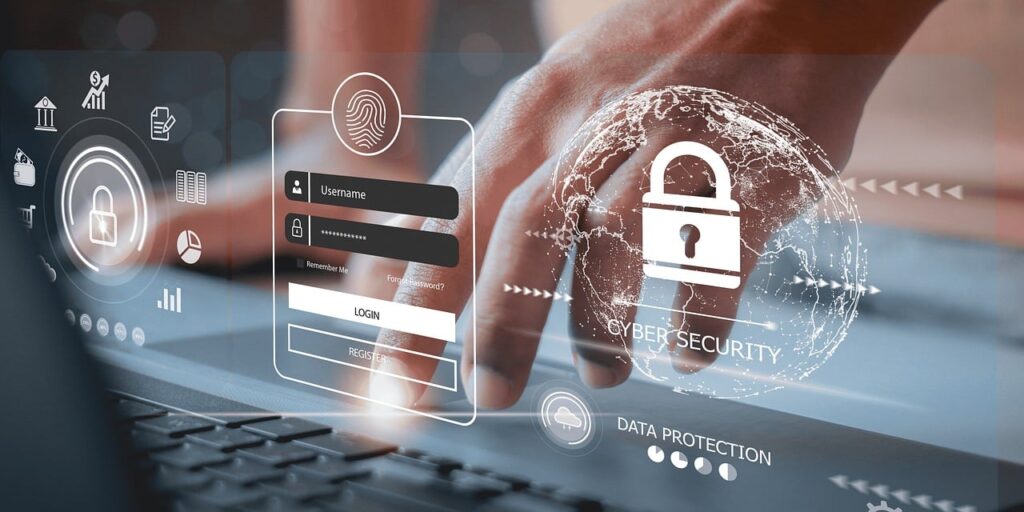Companies of all sizes face cyber threats, and those of us conquering the world from the comfort of our home can fall prey to these attacks if we’re not informed, aware, and cautious. The CEOs may think it’s better to move away from WFH to keep everything more secure, but remote work is now a must for attracting talent and ensuring business continuity. Doesn’t make sense to cut off the finger to get rid of a bad nail.
Remember the spring of 2020? Organizations worldwide had to swiftly transition hundreds of thousands of employees to home offices due to the COVID-19 pandemic. This massive shift highlighted the unique security challenges of remote work environments, which lack the robust safeguards of an office setting. In the office, multiple layers of security controls make it harder to make a mistake. But once your computer leaves the safety of the office, new risks emerge. Here are some guidelines to help you and your employees stay secure while working remotely.
Digital security while working remotely
Avoid Public Wi-Fi
While we do love occasional pop-by’s in coffee shops or our favorite spots to change up our work experience, public Wi-Fi is like a digital Wild West full of outlaws waiting to ambush your data. If you must use it, ensure you’re protected. A personal hotspot is a great option; it sidesteps the risk of getting hacked by someone on the same network. Most carriers offer this feature for a nominal fee, turning your phone into a private Wi-Fi network. It’s a small price to pay for peace of mind.
If you need to access the internet from a public Wi-Fi spot, solve two key problems: fend off others on the network trying to hack into your system and prevent observers from snooping on your traffic. VPNs are your best friend here, encrypting your connection and keeping prying eyes at bay. But choose wisely, not all VPNs are created equal. For extra security, consider encrypted remote connections like RDP, HTTPS, or SSH, which don’t require additional encryption services.
Keep Work Data on Work Computers
Tempted to check a few work emails on your personal laptop? Resist the urge. Your work computer is a fortress equipped with all the necessary defenses like secure Wi-Fi, VPNs, encrypted drives, and antivirus protection. Your personal laptop? Not so much. Mixing personal and work devices is a recipe for disaster. If your company offers a secure remote access portal, use it. Always keep personal business on personal devices and work tasks on work devices.
Block the Sight Lines
Ever felt someone peeking over your shoulder at a coffee shop? They might be more than just curious and they could be a cybercriminal. Always be mindful of your surroundings and protect your screen from prying eyes. And never leave your devices unattended and it takes just a moment for someone to compromise your security with a malicious USB stick.
Encrypt Sensitive Data
Emailing sensitive information? Encrypt those attachments. It ensures that even if the email is intercepted, your data remains safe. Also, ensure your device is encrypted, so if it’s stolen, your data does not fall into the wrong hands.
Physical security while working remotely
Lock Your Doors
Basic but crucial to always lock your doors. A friend’s work laptop was stolen from his unlocked third-floor apartment. Don’t let this happen to you. Locking up can save you and your company a lot of stress. In heavily regulated industries like healthcare, losing unencrypted data can result in hefty fines. Encrypted devices turn a potential disaster into a mere inconvenience.
Never Leave Devices in the Car
Leaving your laptop in the car is like leaving a gold bar on the seat. Even the trunk isn’t safe from determined thieves. Always keep your devices with you, reducing the risk of theft.
Don’t Use Random Thumb Drives
Finding a thumb drive on the ground? Leave it be. Hackers often plant these hoping someone will plug them in, giving them access to your system. Only use trusted USB drives to avoid this trap.
Use a USB Data Blocker
Need to charge your phone at a public station? Protect your device with a USB data blocker. This nifty gadget allows power to flow while blocking data transfer, keeping your phone safe from malware.
Remote work is here to stay, and so are the cybersecurity challenges that come with it. By following these practices, you can ensure that your remote work environment remains secure and productive. Stay vigilant, stay safe, and happy remoting.

